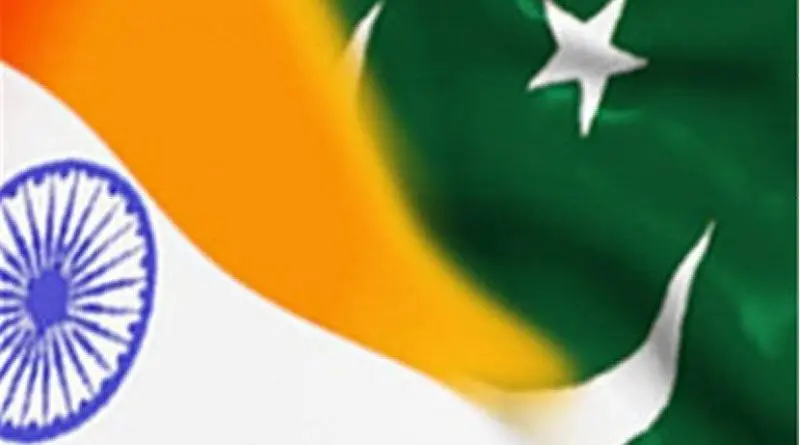Pakistan’s Skepticism On India’s NFU Policy Stands Validated – OpEd
The South Asian region is widely regarded as vulnerable to the threat of nuclear war. This is largely because of the Kashmir issue’s dangerous potential as a ‘nuclear flashpoint’ between India and Pakistan.
This is evident in how the use of nuclear weapons is currently being debated at the highest levels of both the Indian and Pakistani leadership against the backdrop of the latest rounds of tensions over the disputed territory. This includes recent statements by Indian Defence Minister Rajnath Singh which have alluded to India rolling back its ‘No-First Use’ (NFU) policy regarding the use of nuclear weapons. In the wake of the ongoing hostility in the region, the likely shift in India’s NFU policy is likely to have long-lasting implications for peace and stability across the region.
Keeping in mind the implications of the above-mentioned statement Pakistan’s response has been articulated at various strategic levels in Pakistan. For instance, Prime Minister Imran Khan in his article for the New York Times condemned this likely shift by terming it as a ‘not-so-veiled’ nuclear threat to Pakistan. Foreign Minister Shah Mahmood Qureshi condemned India’s assertion of changing its NFU policy by terming it highly unfortunate and reflective of India’s irresponsible and belligerent behavior.
At the military level, Pakistan has always doubted India’s NFU policy to have ever existed in the first place. This was reflected in Pakistan military’s official spokesperson Major General Asif Ghafoor’s statement in which he clearly said that India’s ‘no first use’ was its sole prerogative and if it wanted to change its policy then it was its own choice.
Contrary to India’s declared NFU policy, Pakistan has never made such a commitment or statement and has deliberately maintained a policy of ambiguity concerning a nuclear first strike against India. This has been carried out with a view to assuring its security and to preserve its sovereignty by deterring India via both minimum credible deterrence and full-spectrum deterrence capabilities.
This posture asserts that since Pakistan’s nuclear weapons are for defensive purposes in principle, they are aimed at deterring India from any and all kinds of aggression. Therefore, even now Pakistan is likely to keep its options open and still leave room for the possibility of carrying out a ‘first strike’ as a viable potential deterrent against India if any of its stated red lines are crossed.
Furthermore, India’s NFU policy is hardly verifiable or justifiable when taken at face value as a credible policy option because of Indian offensive missile advancements and growing nuclear arsenal. This is also evident from India’s enhanced missile developments which include; hypersonic missiles, ballistic missile defence systems, enhanced space capabilities for intelligence, reconnaissance, and surveillance and the induction of nuclear powered ballistic missile capable submarines.
Such recent developments indicate that India’s nuclear weapons modernization is aimed at continuously enhancing its deterrence framework including its second-strike capabilities. As such it is also evident of India’s shift towards employing a counterforce instead of a counter value approach to nuclear warfare.
By continuously seeking an edge over Pakistan in terms of more accurate strike and, intelligence gathering capabilities, supported in tandem by enhanced BMD systems, the shifting trends indicate that India might find it more feasible to abandon its NFU policy and flirt with the possibility of a more offensive as opposed to defensive nuclear posture.
However, since Pakistan has long doubted India’s NFU policy anyway, India’s attempt to rethink, reconsider, reinterpret or shift away from its NFU policy would do not really make much difference for Pakistan’s strategic calculus. The first amendment in the NFU policy in 2003 which was based on the Indian Cabinet Committee on Security’s (CCS) review of its nuclear doctrine had already denied the NFU policy.
According to this review, if the Indian armed forces or its citizens were attacked with chemical or biological weapons, then India would reserve the right to respond with nuclear weapons. Moreover, India’s preparations for a limited war or a low-intensity conflict against Pakistan under its more recent doctrines such as the 2017 Joint Doctrine of the Indian Armed Forces (JDIAF) and the 2018 Land Warfare Doctrine (LWD) are also based upon more proactive offensive strategies and indirect threats of preemptive strikes which have long since eroded the credibility of its NFU policy.
Hence, based on this context, the likelihood of India shifting its declared position on the No First Use nuclear policy against the backdrop of ongoing tensions over the Kashmir issue presents a highly irresponsible and destabilizing move by the Indian government. Especially during a situation where exercising calm and restraint are of the utmost importance, India has willfully put at stake the delicate strategic balance which exists in the South Asian region. This is likely to pose severe and long-lasting implications for peace and stability across not only the South Asian region but the entire world at large.
*The writer is working as a Research Associate at Strategic Vision Institute (SVI) Islamabad, Pakistan


The writer argues ”exercising calm and restraint are of the utmost importance”. it is indeed important but when did Pakistan ever practice what it is preaching now. To every restraint by the Indian leaders, the Pakistani leaders and their generals exploited the situation and exported more terrorists trained and equipped by them and continued to violate the ceasefire targetting civilians. The chicken has now come back to roost. The growing serious unrest in Balochistan, Sindh, and PoK are just the beginning. The systematic brutality perpetrated to religious minorities, including forceful conversion and desecration of places of worship are perhaps cowardly acts of revenge against helpless civilians. Writer wants India to stick to NFU but supports FU for Pakistan.
Come to the real world. Do not waste more time on futile ventures and instead concentrate on solving your economic woes. Your people deserve better than your leaders going with begging bowl abroad.